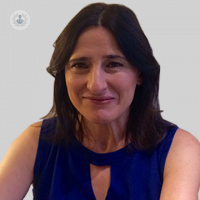Positive psychology to face life in a more optimistic way
Written by:Positive psychology is the study of optimal human functioning. In this regard, he studies the positive experiences and positive individual traits of individuals, in order to prevent or reduce diseases. The ultimate goal is to be happy.
Until a few years ago, the psychology more emphasis on suffering and its causes. To do this, they have developed over time numerous techniques and programs designed to alleviate suffering. In recent years, thanks to Dr. Martin Seligman, founder of this current, has been that it is not only necessary to alleviate suffering but to reinforce strengths, virtues and abilities of the individual to increase subjective levels of well-being and that these moments of well-being are more frequent than the moments of suffering.
People want more than just alleviate their suffering, you need to develop the states that make it worth living, look for a meaning to life.
In short, positive psychology is a way to increase positive emotions, knowing our own strengths and launching our personal skills.

Applications of positive psychology
The practical application of this current is given in all areas of life. On a personal level, it teaches us to increase our positive emotions, to think of a healthier way to achieve our goals. It also allows us to know our strengths to develop to the fullest and to be present in our lives.
They are also known applications of positive psychology has a business level, promoting the optimal development of the individual in the company, being aware of what we are good and helping others to develop their own potential.
Techniques to enhance positive psychology
There are numerous techniques to increase positive emotions, as well as those to discover our personal strengths. Some of the main strengths are:
- Curiosity about the world
- The love of learning
- The goodness
- Justice
- The leadership
Each of us have more or less innate strengths, some talents in certain fields that show a special skill that we are given either make or that arouses our interest. Thus, the strengths are both natural patterns of thought, feeling and behavior like that can be applied productively in our daily lives.
For example, take the strength of creativity, defined as the process of using the originality to devise new ways to contribute positively to the life or the lives of others. Creative people are able to apply their imagination in new and surprising ways, in order to solve the problems they face. One idea would be to enhance this fort for example, create an original idea in an area of interest, such as making a personalized gift for someone who does not buy in any store.
A very powerful to develop the strength of gratitude, for example, technique is to score at the end of the day, 10 things for which we are grateful in the day, since often take for granted the good things that happen to us.
There are techniques aimed at increasing levels of optimism, based on putting our attention on the positive aspects of a situation. This helps to relativize the problems, focusing on its solution. Thus we learn to have a positive mental attitude will make us more resilient to the vagaries of life.
Do you have contraindications positive psychology?
No contraindications are known in the application of the techniques of positive psychology. Importantly, the goal of positive psychology is not "being happy all the time" or make us immune to the normal mishaps of life, as we are all vulnerable to and is part of life. It is, therefore, to learn to get us out of ourselves and what life has to offer.


